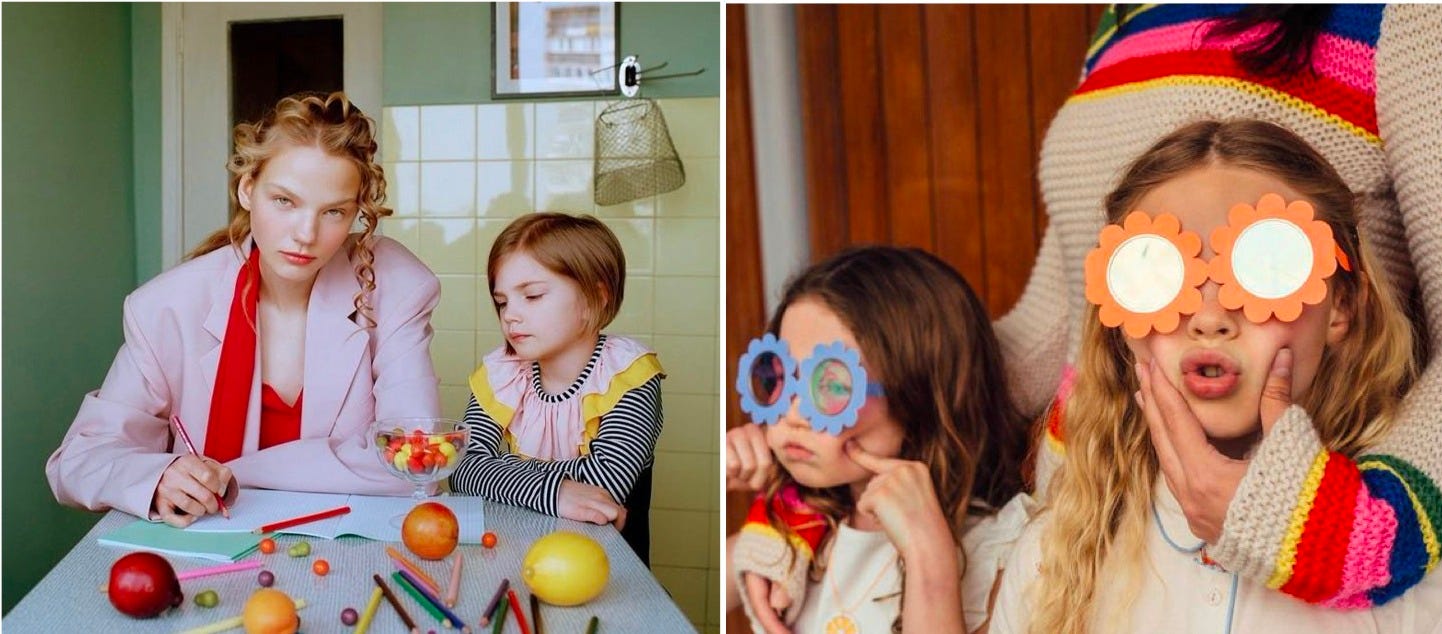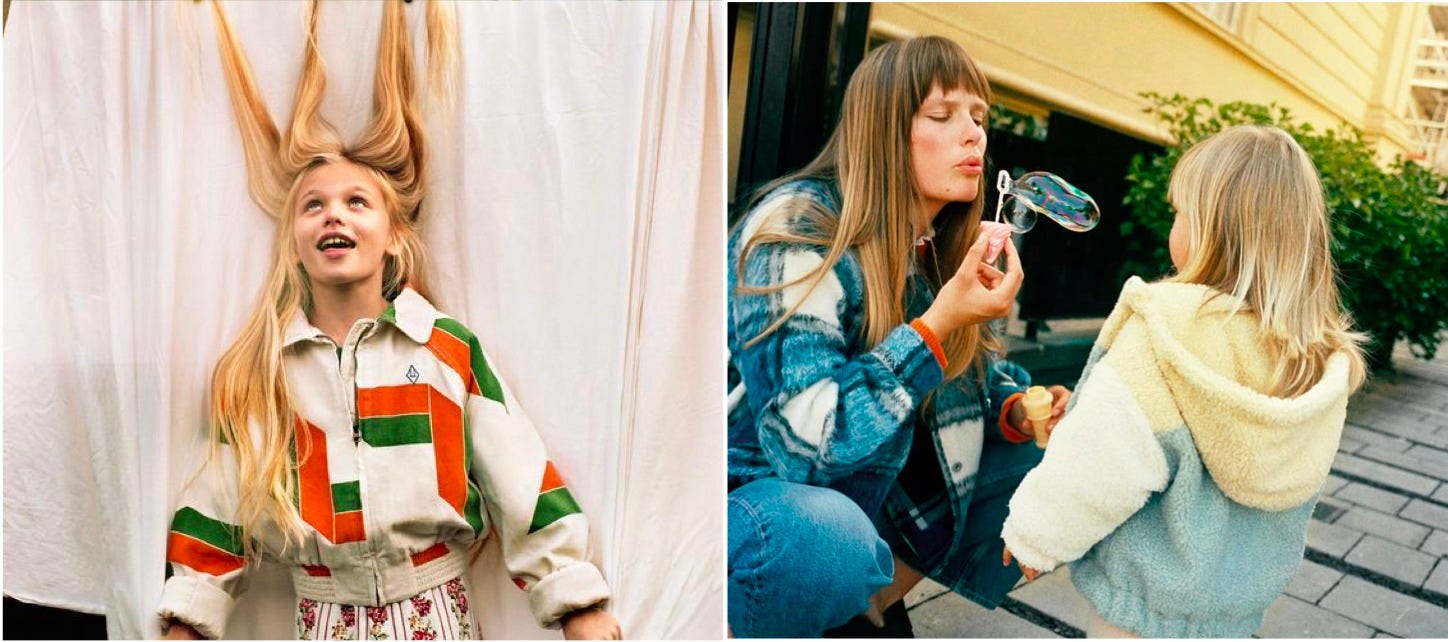Parenting, Inc.: Welcome to the Era of Expert Everything
Because if you don’t have a parenting philosophy, a private coach, and three bookmarked Substacks—are you even trying?
In the words of Dr. Becky… two things can be true: I’ve casually quoted Emily Oster and I still have no idea how to not spiral when my kid refuses to put on his shoes…even after paying $29 a month to feel good inside about my parenting. Okay that’s three things, but I’m not alone.
We’re living in the golden age of parenting advice—but make it monetized. Today’s experts don’t just write books; they build platforms. They have newsletters, courses, apps, merch, and waiting lists. They’ve turned parenting into a product, and us into recurring revenue.
Let’s get into it.
The Experts Are In (And They Have Membership Models)
Parenting used to be passed down through stories. Now it’s packaged in science-backed frameworks.
Data Is the New Gut
Emily Oster broke the internet—and a million myths—with Expecting Better. Her newsletter, ParentData, is now a go-to for “statistically sound parenting.” Want to know if Tylenol stunts development? She probably has a chart for that.
ParentData has over 150,000 subscribers and earns an estimated $500K/year through Substack alone.
Feelings Are Friends (and a Business Model)
Dr. Becky’s Good Inside turned millennial anxiety into an empire. Her tone? Therapist-meets-coach with a side of frazzled relatability. Her offerings? Membership platform, live workshops, books, TV appearances, a podcast, and soon… talk show?
Good Inside raised $2M+ in funding in 2023 and reports over 25,000 paying members.
Sleep and Feeding = Full-Time Jobs
Solid Starts reframed first foods (and launched a thousand searches for “strawberries + gag reflex”). Their First Foods database is now the bible of baby-led weaning. Meanwhile, Taking Cara Babies built a multi-million-dollar sleep course business by helping parents get a full night’s sleep without losing their minds.
Solid Starts’ app has been downloaded over 1M times, and Taking Cara Babies reportedly grosses over $6M/year from digital courses alone.
Micro-Influencers, Mega-Impact
Creators like Big Little Feelings and Destini Ann (aka Manifest Destini) have built followings not just on cute reels—but actionable advice. They’re offering course bundles, brand deals, and “parenting influencer” as a viable job title.
The Business of Parenting Is Booming
It’s not just the experts. It’s an entire ecosystem.
From Content to Commerce
The first wave of parenting blogs gave way to books. Then: newsletters. Now? It’s full-on retail, with branded parenting products and curated marketplaces.
Lovevery raised $800M+ for its $80/month toy kits and is now moving into early literacy. The question isn’t just what’s next—it’s how far? Private preschools? Branded elementary schools? They basically already wrote the syllabus.
Tinyhood turned expert courses into a top-selling digital parenting library. With nearly $8M in funding, Tinyhood is positioning itself as the MasterClass of modern parenting—minus the celebrity chefs, plus the lactation consultants.
Nanit moved from baby monitors to behaviori nsights and is now is moving beyond sleep into full-stack parenting intel. The dashboard is just the beginning.
The global parenting products market is projected to reach $180B by 2030.
Media Moves
Ms. Rachel got a Netflix deal. Dr. Becky’s podcast charts weekly. Lisa Damour’s books are staples for parents of tweens and teens. Parenting isn’t just personal—it’s programming.
Ms. Rachel’s YouTube channel has 12M+ subscribers, over 3 billion views—she just got a toy deal.
Momstincts: Where This Is Headed + Why
AI Is Coming for Your Parenting Questions
Forget Google spirals—AI parenting assistants are being trained to answer questions with expert-backed nuance. Tools like Owlet and Huckleberry are already in-market, promising personalized advice based on child age, mood, and even nap patterns.
The AI baby monitor market is forecast to grow 12% year over year through 2027.
Expect Coaches, Not Just Courses
Therapist-adjacent parenting coaches are moving from niche to norm. Think Slack groups for toddler meltdowns, live weekly Q&As, and monthly “strategy calls” for navigating screen time.
The term “parenting coach” has seen a 94% increase in Google searches over the past two years.
Institutional Distrust Breeds Industry
From formula recalls to pediatric contradictions, modern parents don’t trust anyone. Enter: the independent expert. One who explains things in plain English, backs it with studies, and has a “no shame, just science” ethos.
85% of millennial parents say they’ve made a parenting decision based on advice from a creator they follow online.
TL;DR:
Parenting advice used to be free—and came with a side of unsolicited judgment. Now it’s optimized, monetized, and backed by pitch decks. Motherhood has become a performance of care, one that’s as much about optics as it is about outcomes. The experts we follow aren’t just shaping our parenting—they’re shaping our identity, too.







